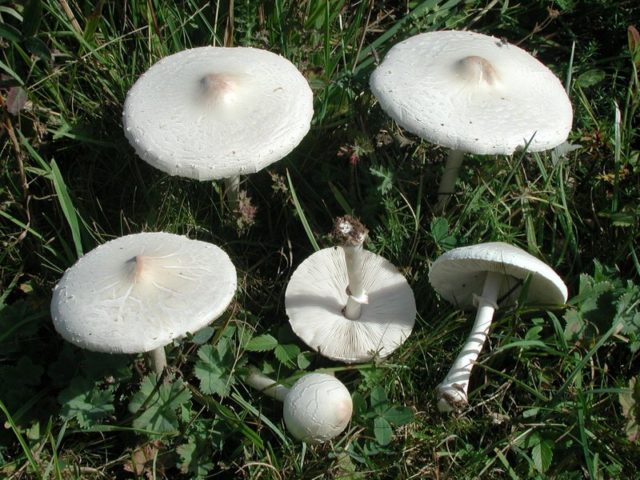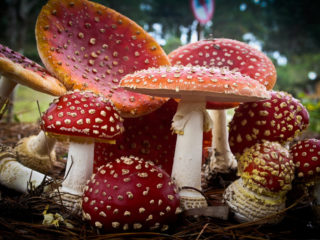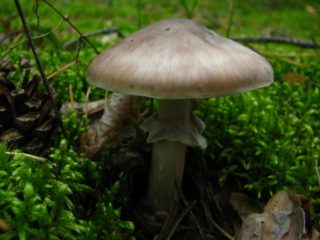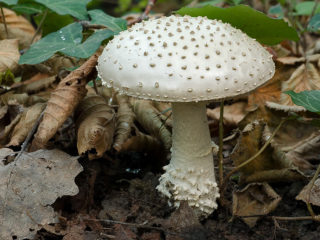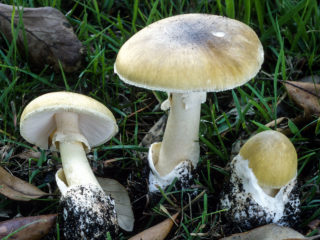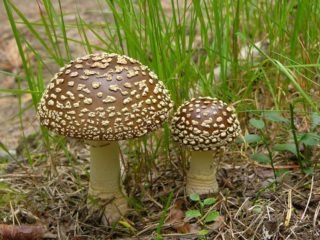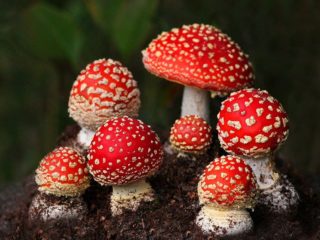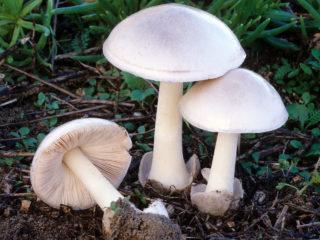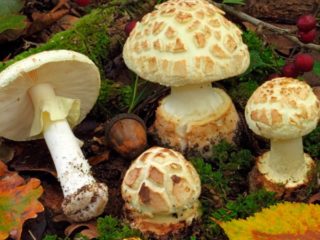Content
The fly agaric Vittadini is a conditionally edible representative of the Amanitaceae family, but some sources classify it as inedible. So whether to eat this species or not is an individual decision. But in order not to confuse it with poisonous specimens, you need to carefully familiarize yourself with the external characteristics, view photos and videos.
Description of the fly agaric Vittadini
The fly agaric Vittadini can easily be confused with its poisonous counterparts, so you need to start getting to know it with its external characteristics. It will also be important to view photos and videos.
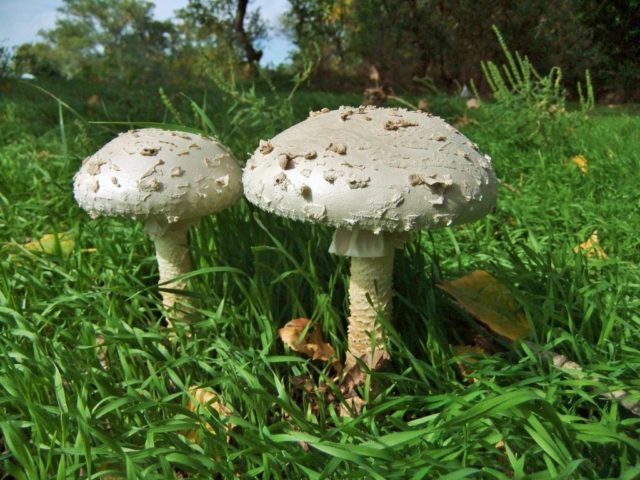
Suitable for preparing fried, stewed and boiled dishes
Description of the cap
The fruit body has a large cap, up to 17 cm in diameter. The surface is covered with whitish or light gray skin with numerous dark growths. There are also specimens with a greenish surface. The bell-shaped or prostrate cap has smooth, uneven or ribbed edges. The lower layer is formed by loose, thin whitish plates. At a young age, they are covered with a film, which, as the mushroom grows, breaks and descends to the stem. Fruiting occurs through oblong spores, which are located in a snow-white powder.
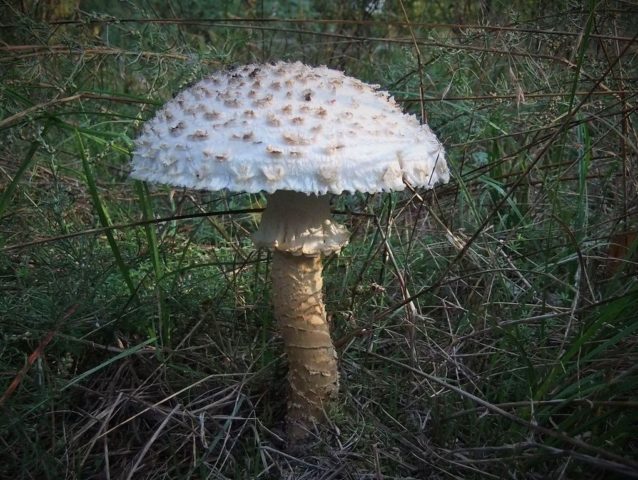
The cap is covered with numerous dark scales
Description of the leg
The smooth leg, 10-15 cm long, is covered with a white peel. Towards the base the shape narrows and acquires a coffee color. The species has a distinctive feature: the presence of rings on the leg, which consist of white pointed scales and a vulva located at the base. The vulva can only be seen in young representatives; as they grow, it becomes thinner and disappears over time.
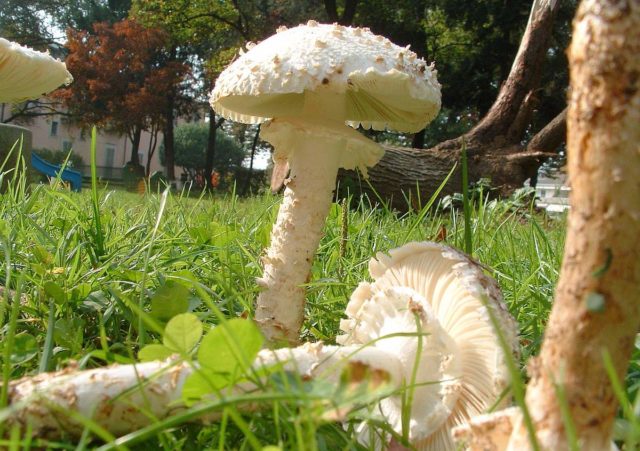
The leg is long, surrounded by a dense ring
Where and how does it grow
The Vittadini fly agaric is common in the southern regions, in mixed forests, forest plantations, and virgin steppes. It grows in single specimens, less often in small families. It begins to bear fruit from May to October.
Edible mushroom Vittadini fly agaric or poisonous
Amanita Vittadini, due to its pleasant taste and aroma, is eaten fried, stewed and boiled. But since the species has very similar deadly poisonous counterparts, experienced mushroom pickers do not recommend collecting it.
Amanita Vittadini, like all edible representatives, brings benefits and harm to the body.
Beneficial features:
- increases immunity;
- strengthens blood vessels and normalizes blood pressure;
- calms the nervous system;
- normalizes the metabolic process and removes bad cholesterol;
- satisfies the feeling of hunger, so mushroom dishes are recommended for people who are watching their weight;
- stops the growth of cancer cells.
Mushroom dishes are not recommended for children under 7 years of age, pregnant women, people with intestinal and stomach diseases, and 2-3 hours before bedtime.
To have an idea of what the Vittadini fly agaric looks like, you need to look at photos and videos, and also know the external characteristics of its inedible fellows.
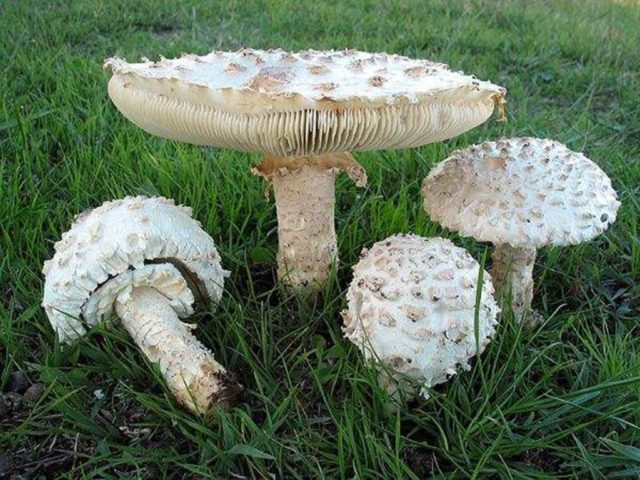
A rare species that grows in single specimens or small families
Doubles and their differences
The fly agaric Vittadini, like any forest dweller, has similar doubles. These include:
- Fly agaric white or spring - a deadly poisonous representative of the forest kingdom. You can recognize it by its rounded or straightened snow-white cap with a small depression in the center. The surface is dry, velvety, reaching a diameter of no more than 10 cm. The hollow stem is cylindrical, painted to match the cap. The surface is fibrous, scaly. The snow-white pulp is dense and emits a sharp, unpleasant aroma. If consumed it leads to death.
Deadly representative of the mushroom kingdom
- Umbrella white - an edible species with a peculiar taste, reminiscent of the taste of chicken. In young specimens the cap is slightly elongated; as it grows, it becomes semi-prostrate and by full maturity takes the shape of an open umbrella. The snow-white surface is covered with numerous dark scales. The leg is thin and long, colored to match the cap. The snow-white or gray pulp is fragile, with a pleasant taste and smell.
Beautiful appearance with a pleasant taste and smell
Conclusion
Amanita Vittadini is an edible representative of the mushroom kingdom. During drought, the fruiting body stops growing and falls asleep; after rains, the mushroom is restored and continues its development. Since this representative is similar to its deadly poisonous counterpart, you need to carefully familiarize yourself with the external characteristics. But if during a mushroom hunt there is some doubt about the authenticity, then it is better to pass by.

